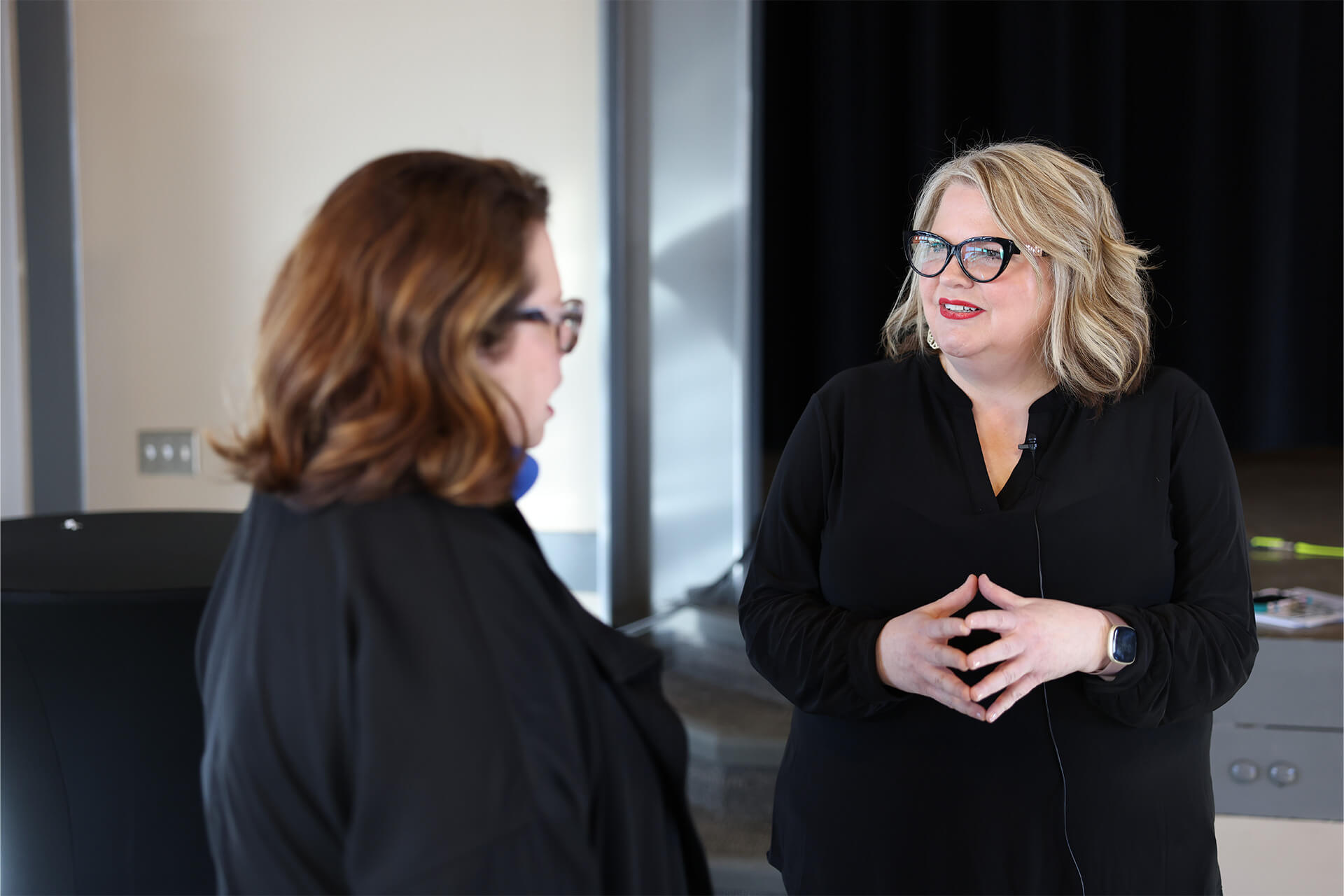03.27.25
The Four Skillsets of Courage: Transforming Leadership through Authenticity and Bravery
By Sadie Rudolph, Vice President of Strategic Communication, The Chamber

Jill Nelson, Dare to Lead facilitator, discussed the skillsets of courage with an attendee at the January Women Connect.
In leadership, the ability to lead courageously can often be the difference between a team that thrives and one that simply survives. Courageous leadership isn't about fearlessness—it's about showing up authentically, even when the path ahead is uncertain.
At January’s Women Connect, Dare to Lead certified facilitator and NDSU professor Jill Nelson, Ph.D., shared Brene Brown’s framework on the Four Skillsets of Courage, offering a roadmap for cultivating bravery in leadership, helping individuals and teams build deeper connections, and inspire meaningful change.
Rumbling with Vulnerability
Vulnerability is often misunderstood, with many leaders resisting it for fear of appearing weak. However, it is the gateway to connection, growth and creativity. It is not a weakness but a source of strength and courage. Leadership isn’t about avoiding vulnerability—it’s about embracing it as a powerful tool. No leader succeeds alone; true leadership requires leaning on others for support, feedback and guidance.
While uncertainty is an inherent part of vulnerability, it cannot be engineered out of the process—we must learn to embrace it. Trust and vulnerability go hand in hand, as trust is built through moments of openness and authenticity. Importantly, vulnerability isn’t just about disclosure; it’s about being real and intentional in the right moments. Courage begins with vulnerability, requiring us to step into the unknown, ask tough questions and seek help when needed. By embracing vulnerability, we foster trust, fuel innovation and lead with authenticity rather than perfection.
Living Into Our Values
A courageous leader knows who they are and what they stand for. Living into our values means aligning our actions with our core beliefs, even when it’s hard or unpopular. When leaders live by their values, they inspire others to do the same. This consistency not only builds trust but also strengthens the culture within teams and organizations, creating a solid foundation for growth and success.
Braving Trust
Trust is the bedrock of any high-performing team. But trust isn’t just given—it’s earned through consistent actions. Braving trust means setting clear boundaries, being reliable, holding ourselves and others accountable, and acting with integrity. It requires us to embrace vulnerability and show up with openness, creating a safe space where others can do the same.
Learning to Rise
Every courageous leader faces setbacks. The key to resilience lies in how we respond to failure. Learning to rise is about owning our mistakes, challenging false narratives and using our experiences to grow. It’s a skillset that involves emotional agility and a deep commitment to moving forward, no matter how many times we fall. With every rise, we become more confident, more capable and more courageous.
Your call to courage: Step into your full potential
Jill’s challenge to attendees is simple, yet powerful:
- What permission do you need to give yourself to lead boldly?
- What support do you need from those around you?
- How can you cultivate gratitude, brave work, tough conversations and wholehearted leadership?
It’s time to trade comfort for courage.
By embracing the Four Skillsets of Courage, you can transform your approach to leadership and begin to lead with authenticity, empathy, and resilience.
Take that first step. Cultivate the confidence to lead with courage and watch how it transforms not only your leadership but also the culture around you.
SHARE
More Stories
Upcoming Events
